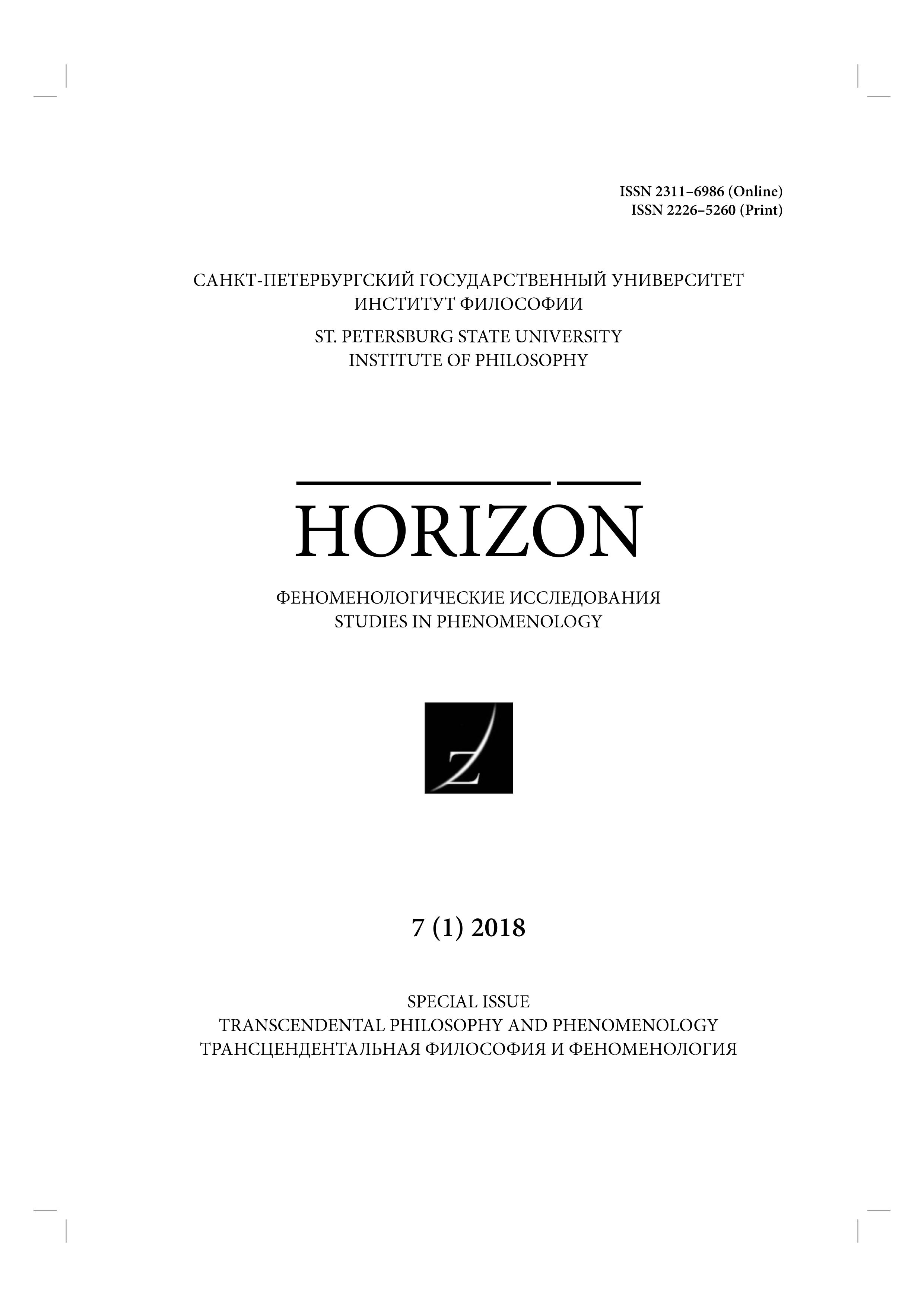NATURE AS EXPRESSIVE SYNTHESIS: THE SENSIBLE AWAKENING OF THE TRANSCENDENTAL BETWEEN KANT, HUSSERL AND MERLEAU-PONTY
NATURE AS EXPRESSIVE SYNTHESIS: THE SENSIBLE AWAKENING OF THE TRANSCENDENTAL BETWEEN KANT, HUSSERL AND MERLEAU-PONTY
Author(s): Don BeithSubject(s): German Idealism, Phenomenology
Published by: Издательство Санкт-Петербургского государственного университета
Keywords: Phenomenology; transcendental idealism; Kant; Husserl; Merleau-Ponty; consciousness; temporality
Summary/Abstract: The critical insights of transcendental philosophy and phenomenology evolve out of a tension in the nature of consciousness. On the one hand, consciousness is a synthetic activity or intentional that discloses the horizon in which meanings and objects have conditions of possibility. On the other hand, in perception we find the workings of sense that point to a dynamic, expressive origin prior to the pure activity of consciousness. Our investigation is concerned with explaining how this passivity of consciousness is itself a synthesis that arises out of our expressive bodily nature. There is a clear logical connection between the ways Immanuel Kant, Edmund Husserl, and Maurice Merleau-Ponty conceive of a synthesis within sensibility and bodily affectivity, where each thinker requires us to conceptualize nature as a mode of expressivity, with the implication that transcendental conditions of possibility must, mysteriously, happen within the very intercorporeal and temporal fields that they render possible.
Journal: Horizon. Феноменологические исследования
- Issue Year: 7/2018
- Issue No: 1
- Page Range: 186-202
- Page Count: 17
- Language: English

